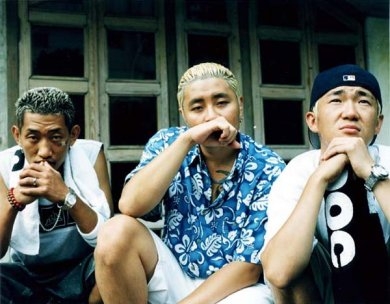
The Financial Times’ Emiko Terazono recently interviewed Bill Emmott, the soon-to-be-departing editor of The Economist (OOPS! The FT took it down but you can still read the interview here). The interview was conducted at a Japanese restaurant in London over lunch (scroll down to the bottom to see what they ate and how much it cost). In the article, Terazono describes Emmott‘s truly enviable career as a journalist and noted Japan expert, and toward the end makes the following observation:
He holds his chopsticks perfectly, and lifts his rice bowl when eating from it – as the Japanese do. He also does not make the common gaijin faux pas of pouring soy sauce on his rice.
I did a little (very little) digging to make sure Terazono is not simply an adopted Briton who kept her Japanese name (a la Kazuo Ishiguro, the author of The Remains of the Day). Turns out, according to this interview, Ms. Terazono was born in Japan 40 years ago, spent her junior high and high school years in Canada, went to a Japanese college, worked at a bank, hated it, and then got work at the FT Tokyo Bureau, where she fought hard for six years to get out before getting assigned to the London headquarters. So that confirms that she is writing from the perspective of a member of Japanese society, not that of a gaijin herself.
IMO, the observation works well to drive home the point that not only is Mr. Emmott a well-received author on Japan (whom I have not read, unfortunately), he actually took the time to get the little things “right” about Japanese culture and thereby truly understands it. Don’t you get that impression?
But wait a minute – do his table manners really matter? I mean, would a journalist in India, for example, earn the respect of the locals by eating with his/her fingers and refusing to carry around toilet paper? Would his analysis ring untrue if he didn’t?
Continue reading Even the departing editor of the Economist isn’t above chopstick praise



 The article is indeed impactful, but the Asahi English edition seems to have taken it out of context a bit. The
The article is indeed impactful, but the Asahi English edition seems to have taken it out of context a bit. The  Recently, curry rice, loved by children and easily made with stock bought at supermarkets, has been undergoing a transformation in Japan. Long-standing ryotei (high-class Japanese restaurants) and French restaurants are entering the market one after the other. Even a 10,000 yen premium curry with carefully selected ingredients has come on the scene. Perhaps the next star after the ramen boom will be fancy curry?
Recently, curry rice, loved by children and easily made with stock bought at supermarkets, has been undergoing a transformation in Japan. Long-standing ryotei (high-class Japanese restaurants) and French restaurants are entering the market one after the other. Even a 10,000 yen premium curry with carefully selected ingredients has come on the scene. Perhaps the next star after the ramen boom will be fancy curry?